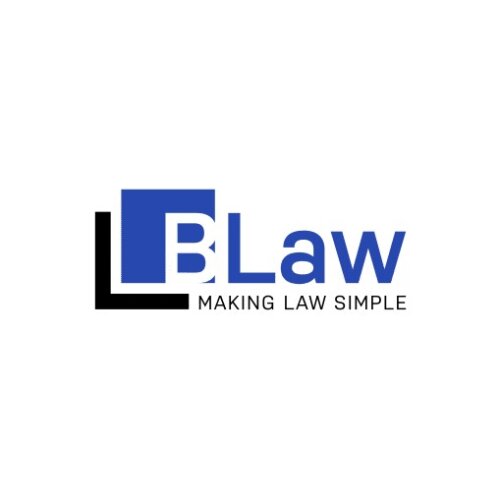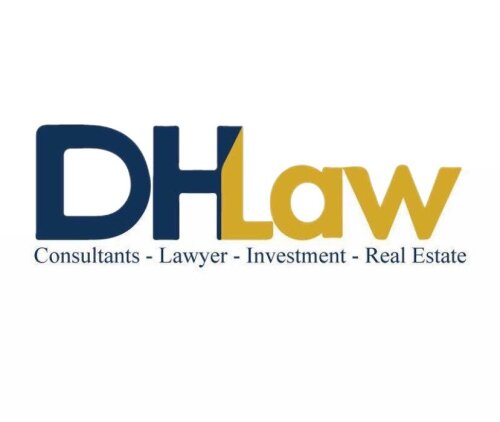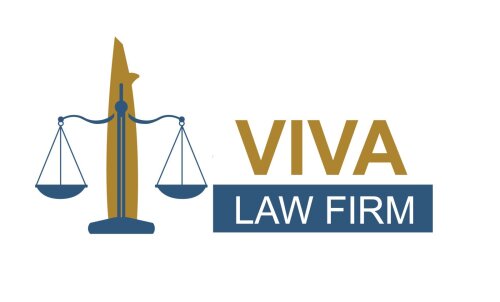Best Patent Lawyers in Vietnam
Share your needs with us, get contacted by law firms.
Free. Takes 2 min.
Or refine your search by selecting a city:
List of the best lawyers in Vietnam
![[DDC] DONG DU INTERNATIONAL ACCOUNTING, TAXES & LEGAL CONSULTING GROUP HCMC VIETNAM](https://lawzana.com/storage/firms/2690/17617306202399.jpg)
About Patent Law in Vietnam
Patent law in Vietnam is governed by the Intellectual Property Law, which came into effect on July 1, 2006, and has been amended several times, most recently in 2019. The law provides comprehensive protection for inventions, utility solutions, and industrial designs by granting exclusive rights to creators. These rights allow patent owners to prevent others from exploiting their invention without consent, thus fostering innovation and economic growth. To secure a patent in Vietnam, the invention must be new, involve an inventive step, and be industrially applicable.
Why You May Need a Lawyer
Seeking legal advice in the field of patent law might be necessary for several reasons. Common situations include:
- Assisting with the preparation and filing of patent applications to ensure compliance with legal requirements and to maximize the scope of protection.
- Navigating complexities related to patent infringement and enforcement, including initiating legal action or defending against claims.
- Advising on patent licensing agreements and ensuring fair terms for licensing your patent to other parties.
- Guiding foreign businesses on how to extend their intellectual property protection to Vietnam.
- Providing strategic advice on portfolio management and exploring potential commercialization opportunities.
Local Laws Overview
Several key aspects of Vietnam's patent laws are essential for understanding the legal landscape:
- The definition of a patent includes both inventions and utility solutions. An invention must meet criteria such as novelty, inventive step, and industrial applicability.
- Patent protection is granted for a period of 20 years from the filing date for inventions, while utility solutions are protected for 10 years.
- Vietnam is a member of various international treaties, such as the Paris Convention and the Patent Cooperation Treaty, which facilitates international patent protection.
- A substantive examination process is required for patent applications, involving evaluation of the invention's technical merits.
- Vietnam utilizes a first-to-file system, meaning that priority is granted to the first person who files an application for protection, rather than the first to invent.
Frequently Asked Questions
What is a patent?
A patent is a legal document granted by the government of Vietnam that provides the owner with exclusive rights to an invention, preventing others from making, using, or selling it without authorization.
How long does it take to obtain a patent in Vietnam?
The patent application process can take anywhere from two to four years, depending on the complexity of the invention and the completeness of the submitted documentation.
Can I file a patent application in English?
No, patent applications in Vietnam must be filed in Vietnamese. If your documents are originally in another language, you will need to translate them into Vietnamese.
What inventions cannot be patented?
Certain inventions are not eligible for patent protection, such as scientific theories, methods of mental acts, business methods, computer programs, and methods of treatment for humans or animals.
How can I enforce my patent in Vietnam?
To enforce your patent rights, you may need to take legal action against infringers through civil or criminal proceedings, or seek administrative measures via competent authorities.
What is a utility solution?
A utility solution is a technological solution of smaller significance than an invention, meeting the novelty and industrial applicability requirements but potentially lacking an inventive step.
Can I apply for patent protection for my invention made outside Vietnam?
Yes, foreign inventors can apply for patent protection in Vietnam by filing an application directly with the National Office of Intellectual Property (NOIP) or through international treaties like the PCT.
Is there a grace period for filing a patent application following disclosure?
Vietnam allows a six-month grace period, during which an inventor's disclosure will not affect the novelty, provided the disclosure occurred due to specific circumstances outlined under the law.
How are patent disputes resolved?
Patent disputes in Vietnam can be resolved through negotiation, mediation, administrative measures, or litigation in court, depending on the nature and complexity of the case.
What should I do if my patent application is rejected?
If your application is rejected, you may request a re-examination or file an appeal with the NOIP within a specified period, usually 90 days from the date of notification.
Additional Resources
For additional help, consider reaching out to the following resources:
- National Office of Intellectual Property (NOIP): The primary authority responsible for patent filings and consultations.
- Vietnam Intellectual Property Research Institute: Offers research and resources on IP matters.
- Vietnam IP Association (VIPA): Provides support and networking for IP professionals.
Next Steps
If you need legal assistance with patents in Vietnam, consider these steps to proceed:
- Identify and engage with a qualified patent attorney or firm experienced in Vietnamese patent law.
- Prepare and organize all relevant documents and information about your invention or issue.
- Schedule a consultation to discuss your needs and obtain professional advice tailored to your situation.
- Choose a legal strategy that aligns with your goals, whether it involves registration, enforcement, or defense.
Lawzana helps you find the best lawyers and law firms in Vietnam through a curated and pre-screened list of qualified legal professionals. Our platform offers rankings and detailed profiles of attorneys and law firms, allowing you to compare based on practice areas, including Patent, experience, and client feedback.
Each profile includes a description of the firm's areas of practice, client reviews, team members and partners, year of establishment, spoken languages, office locations, contact information, social media presence, and any published articles or resources. Most firms on our platform speak English and are experienced in both local and international legal matters.
Get a quote from top-rated law firms in Vietnam — quickly, securely, and without unnecessary hassle.
Disclaimer:
The information provided on this page is for general informational purposes only and does not constitute legal advice. While we strive to ensure the accuracy and relevance of the content, legal information may change over time, and interpretations of the law can vary. You should always consult with a qualified legal professional for advice specific to your situation.
We disclaim all liability for actions taken or not taken based on the content of this page. If you believe any information is incorrect or outdated, please contact us, and we will review and update it where appropriate.
Browse patent law firms by city in Vietnam
Refine your search by selecting a city.
















